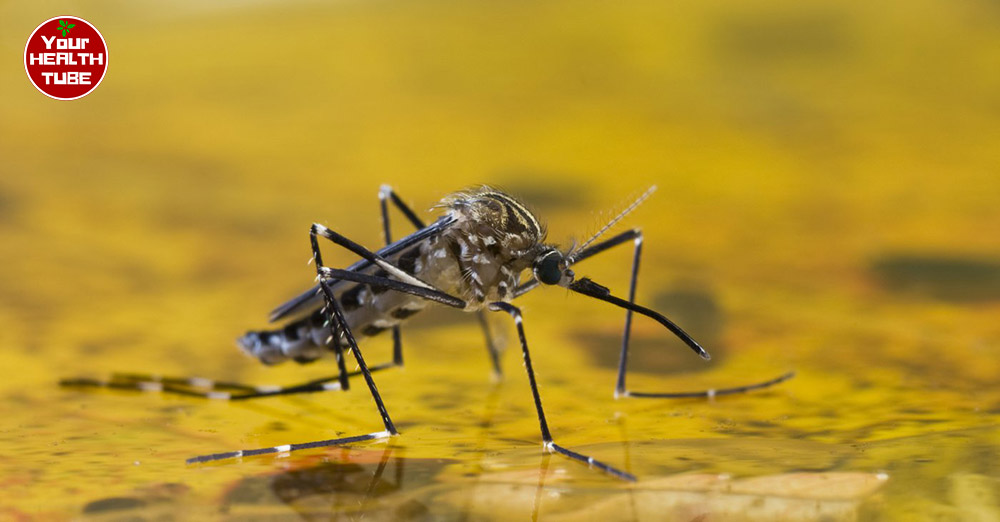Yellow fever is a severe viral infection, spread by specific types of mosquito. It is mostly found in South America, sub-Saharan Africa, and some parts of the Caribbean.
If you are travelling to Central or South America, Africa, and the Caribbean, you must be aware of the risks of yellow fever virus transmission and take the necessary safety measures to protect yourself from this infection. 
How Yellow Fever is Spread?
The virus which causes yellow fever is transmitted to humans through the bite of infected mosquito. The mosquitoes that spread this infection are usually active and bite throughout daylight hours, and are found in both rural and urban areas. This kind of fever cannot be passed directly from person to person.
Symptoms of Yellow fever
The yellow fever symptoms take place in 2 stages. The initial symptoms develop 3-6 days after infection, and may include:
- A headache
- A high temperature (fever)
- Vomiting or nausea
- Muscle pain
- Backache
- Loss of appetite
This stage will usually pass after 3-4 days and most people will make a complete recovery. However, about 15% of people go on to experience more severe problems, including jaundice (yellowing of the whites of the eyes and the skin), bleeding from the nose, mouth, and eyes, kidney failure, and blood in the vomit and stools. Up to half of the people who have these symptoms will die.
Yellow Fever Treatments
- Medical Treatment
There is no specific cure for yellow fever. Treatments usually involve managing symptoms and supporting the immune system in fighting off the infection, usually by:
- Getting oxygen
- Getting enough liquids, possibly through the veins
- Maintaining a normal blood pressure
- Having dialysis if you have kidney failure
- Getting blood transfusion
- Getting treatment for some other infections that can develop
- Natural Treatment
Even though there is no any natural remedy that can cure the infections, still there are some natural remedies that can support the medical treatments. Here are some options:
- Raw garlic – the infection can cause dehydration and weakens the immune system. Due to its powerful anti-bacterial, antiviral and antioxidant properties, garlic can help strengthen the immune system and fight the infection. Eating raw garlic (about 7-10 cloves per day) may help you fight off the symptoms.
- Coconut water – it can help you get rid of dehydration and supply your body with essential vitamins and minerals. Just 5-6 glasses of coconut water will refresh you and ease the symptoms of yellow fever.
- Sugar cane juice – it will help you reduce vomiting and stay hydrated. Sugar cane juice can supply your body with glucose, which is important for the muscles to get their energy. This juice can also help reduce fever.
- Barley – it’s a cereal plant that contains some crucial vitamins and minerals necessary for the health. It can be prepared at home. Just bring a cup of barley and 3-4 cups of water to a boil. Remove from the heat and let stand for about 5 minutes. Strain and drink the water. Barley is rich in essential vitamins, as vitamin B1, vitamin B2, vitamin B5, vitamin B9 and vitamin E. It contains a great amount of copper that can help reduce inflammation and fever. The patient should consume barley water 3 times a day.
How to Prevent Yellow Fever?
Vaccination is still the only way to prevent it. The Centers for Disease Control (CDC) claims that every person who is 9 months to 59 years old and living in or traveling to an area where the risk of yellow fever is present must be vaccinated.
This vaccine is considered extremely safe. It provides protection for at least ten years. The side effects can include:
- Fatigue
- Muscle pain
- A mild headache
- A low-grade fever
Other methods of prevention include wearing clothing to decrease the number of mosquito bites, using insect repellent, and staying indoors during peak times when usually insects bite.
If you are older than 60 and you are considering traveling to a place that may have this virus, you need to discuss vaccination with your GP.
If you are traveling with an infant that is 6-8 months old or you are a nursing mother, you must either postpone travel to these areas if possible or talk to your GP about vaccination.
When to See a Doctor
You need to see a doctor as soon as possible if you are currently travelling in an area where the virus is found, you have symptoms of yellow fever or have recently returned from one of these areas. A blood test will be required to confirm the diagnosis.
Conclusion:
Medical treatment can help you treat the infection. Natural remedies without proper medical treatment cannot help you heal the symptoms. Nowadays, homeopathic treatments are showing some impressive results in the treatment of some virus infections, however, more evidence is required. Prevention is the best way to avoid yellow fever. According to medical experts, vaccination is still the only way to prevent this infection. If you notice any symptoms of yellow fever, which are similar to Zika virus symptoms you need to seek medical help immediately.
The WHO claims that 50 % of people who develop serious symptoms of yellow fever will die. Those people with compromised immune systems and older adults are most at risk for severe complications.
If you are planning to travel internationally, you need to talk with your healthcare professional.
[toggle title=”References”]
Cdc.gov August 13, 2015 Who.int May 2016 Nhs.uk 16/01/2015
[/toggle]